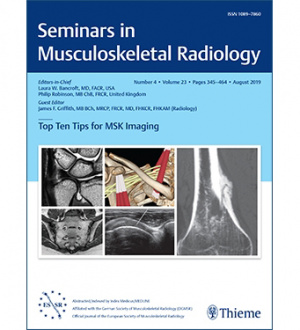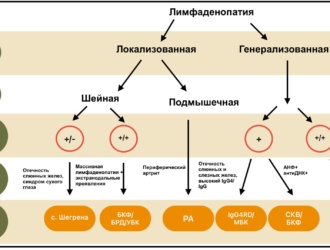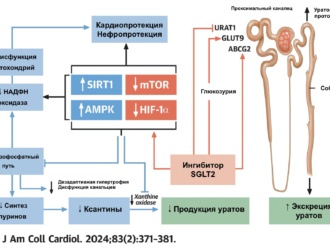

Цель
Оценить когнитивную функцию у пациентов с ревматоидным артритом (РА) и разной степенью воспаления.
Пациенты и методы
В исследовании участвовали 140 человек: 70 пациентов с РА, начинающих терапию биологическими препаратами, и 70 здоровых контролей, сопоставленных по возрасту, полу и уровню образования. Все прошли нейропсихологическую оценку, включая тест MoCA для выявления когнитивных нарушений (результат <26 баллов). Также оценивались тревожность, депрессия, качество жизни, воспалительная активность (DAS28 по C-РБ), а также уровни С-РБ и ИЛ-6.
Результаты
У пациентов с РА когнитивные нарушения встречались чаще, чем у здоровых (60% против 40%; p=0,019). Они также имели более низкие результаты по тесту MoCA (23,6 против 25,1; p=0,019). Снижены результаты в оценке пространственно-исполнительных функций, памяти и абстракции (p<0,05). Пациенты с РА также хуже выполняли обратный цифровой тест (4,0 против 4,7; p=0,039). Когнитивные нарушения были связаны с возрастом, уровнем образования, ожирением и высокой воспалительной активностью (DAS28, С-РБ, ИЛ-6).
Заключение
Пациенты с ревматоидным артритом и высокой воспалительной активностью более склонны к когнитивным нарушениям, особенно в области пространственного восприятия, памяти, абстракции и исполнительных функций.
Mena-Vázquez, N., Ortiz-Márquez, F., Ramírez-García, T., Cabezudo-García, P., García-Studer, A., Mucientes-Ruiz, A., Lisbona-Montañez, J.M., Borregón-Garrido, P., Ruiz-Limón, P., Redondo-Rodríguez, R. and Manrique-Arija, S.
Rheumatic & Musculoskeletal Diseases open, 10(2), p.e004422. 2024.
Ссылка на источник
DOI: 10.1136/rmdopen-2024-004422
Impact of inflammation on cognitive function in patients with highly inflammatory rheumatoid arthritis.
Objective
To evaluate cognitive function in patients with rheumatoid arthritis (RA) and inflammatory activity.
Patients and methods
We performed a cross-sectional study of a cohort of patients with RA initiating their first biological treatment due to moderate-to-high inflammation and a healthy control group (no inflammatory diseases) matched for age, sex and educational level. All participants underwent a comprehensive neuropsychological assessment, with cognitive impairment defined as a Montreal Cognitive Assessment (MoCA) score<26. Additional assessments included various cognitive tests (STROOP, forward and backward digit spans), anxiety and depression scales (Hospital Anxiety and Depression Scale), quality of life measures (Quality of Life-Rheumatoid Arthritis) and average inflammatory activity according to the 28-joint Disease Activity Score (DAS28)-C-reactive protein (CRP) into high activity (DAS28≥3.2) and low activity (DAS28<3.2) groups, also CRP levels and interleukin 6 (IL-6) levels were measured using an ELISA.
Results
The study population comprised 140 participants, 70 patients with RA and 70 controls. Patients more frequently experienced cognitive impairment than controls (60% vs 40%; p=0.019) and had lower mean (SD) values in the MoCA (23.6 (3.9) vs 25.1 (3.4); p=0.019. As for subtests of the MoCA, involvement was more marked in patients than in controls for the visuospatial-executive (p=0.030), memory (p=0.026) and abstraction (p=0.039) domains. Additionally, patients scored lower on executive function, as assessed by the backward digit span test (4.0 (1.7) vs 4.7 (1.9); p=0.039). Cognitive impairment is associated with age and a lower educational level in the general population, and among patients with RA with educational level, obesity and average inflammatory activity (DAS28, CRP, and IL-6).
Conclusions
Patients with RA with high inflammatory activity are more susceptible to cognitive impairment, which specifically affects the domains of visuospatial, memory, abstraction and executive function.






